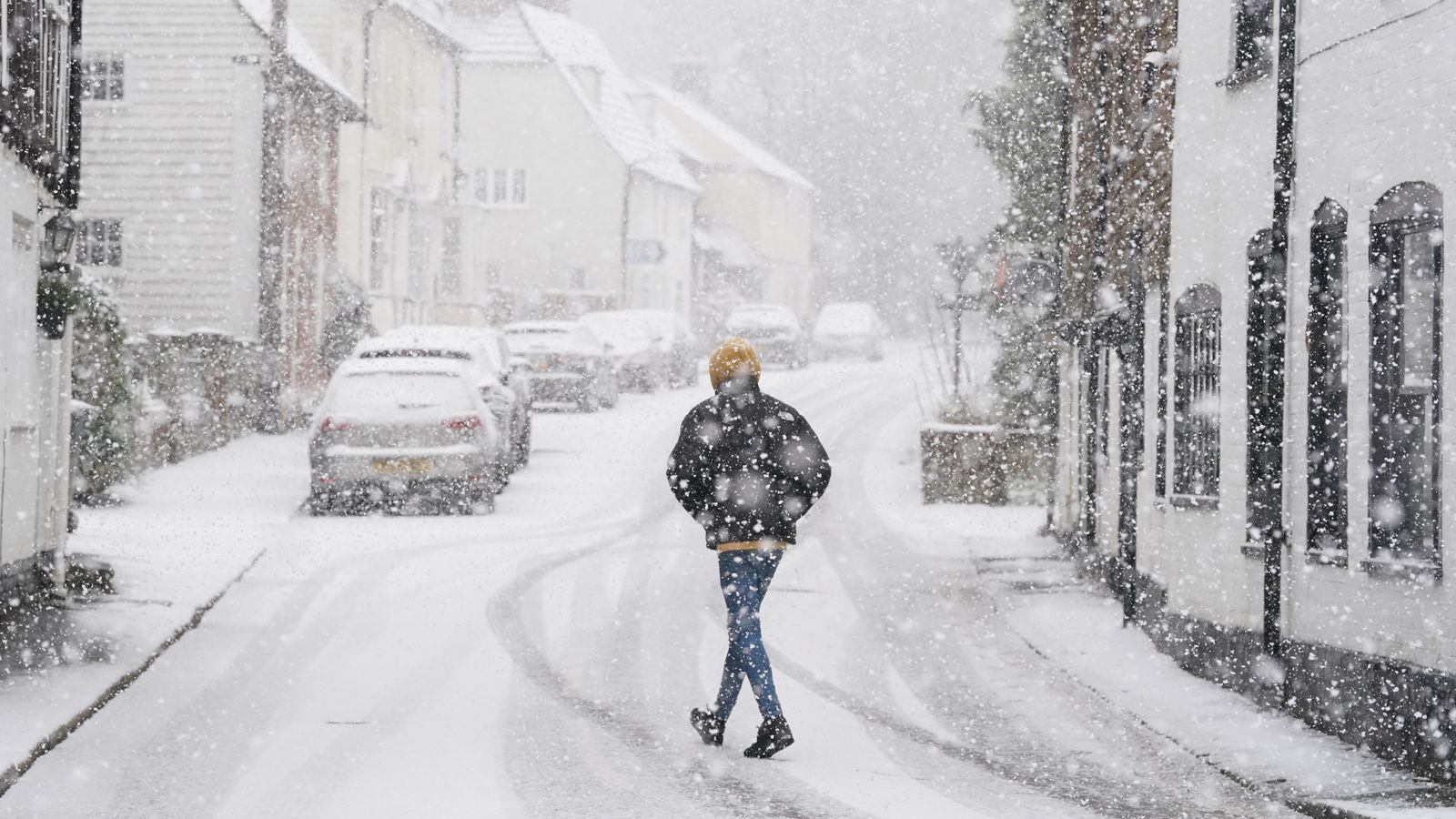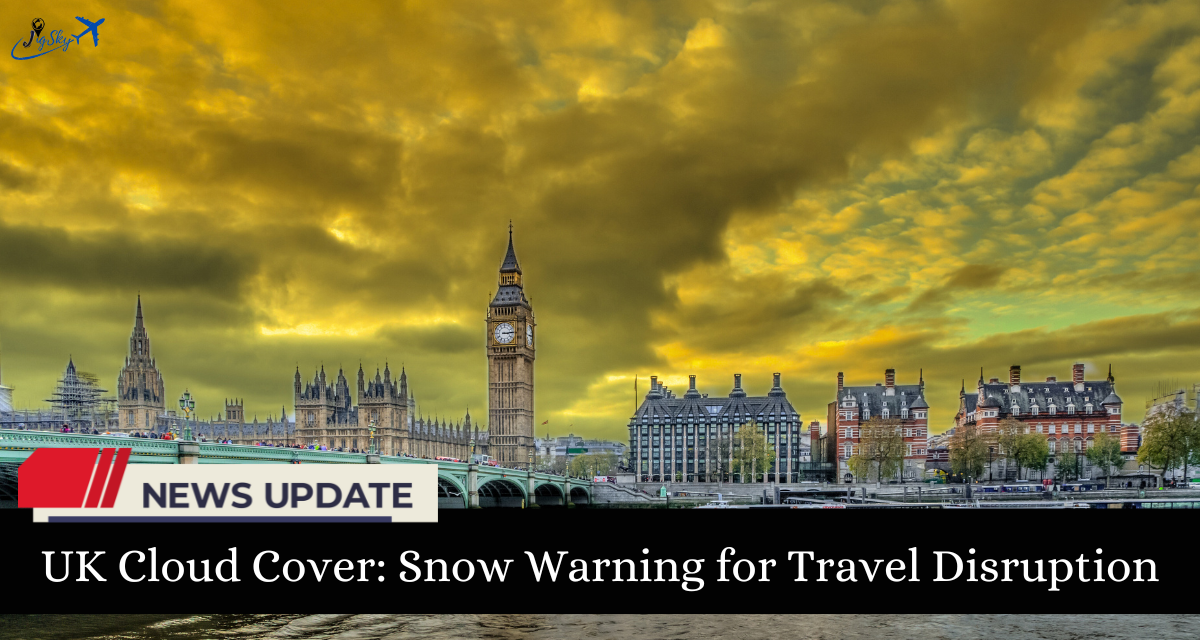Winter in the UK can be unpredictable, with snow warnings becoming increasingly common during the colder months. It's essential for residents and visitors alike to understand the importance of preparing for snowstorms and staying safe when severe weather strikes. This guide will provide you with all the necessary information to navigate snow warnings effectively and ensure your safety.
As snowfall can disrupt daily life, lead to hazardous travel conditions, and even pose risks to personal health, being informed is the first step toward preparedness. This article will cover everything you need to know about UK snow warnings, from understanding the alerts to practical steps you can take to stay safe.
By the end of this comprehensive guide, you'll have a clear understanding of snow warning essentials, including preparation tips, emergency resources, and expert advice to help you navigate winter weather confidently. Let's dive in!
Read also:Jusy Nails Council Bluffs Ia Your Ultimate Guide To Premium Nail Services
Table of Contents
- Understanding UK Snow Warnings
- Snow Warning Levels in the UK
- Essential Preparation Tips for Snow Warnings
- Travel Advice During Snow Warnings
- Safety Measures for Severe Snowfall
- Emergency Resources for Snow Emergencies
- Health Concerns During Winter Weather
- Winter Driving Tips During Snow Warnings
- Snow Removal and Safety Precautions
- Conclusion: Stay Safe and Prepared
Understanding UK Snow Warnings
UK snow warnings are issued by the Met Office, the UK's national weather service, to alert the public about potential snowfall and its impacts. These warnings are designed to keep people informed and safe during periods of severe weather. Understanding how snow warnings work is crucial for effective preparation.
There are several types of snow warnings, each with varying levels of urgency and impact. The Met Office categorizes these warnings based on the likelihood and severity of the snowfall. By staying informed about these alerts, you can take appropriate action to protect yourself and your loved ones.
Why Snow Warnings Matter
Snow warnings are not just about predicting snowfall; they provide critical information about potential disruptions to daily life. From transportation delays to power outages, snowstorms can have far-reaching effects. Being aware of these warnings allows you to make informed decisions and minimize risks.
- Reduces the risk of accidents and injuries.
- Helps you prepare for potential disruptions to essential services.
- Ensures you have the necessary supplies for emergencies.
Snow Warning Levels in the UK
The Met Office uses a color-coded system to indicate the severity of snow warnings. Understanding these levels is essential for taking the right precautions during winter weather.
Yellow Warning
A yellow warning indicates that snow is likely to occur, but the impact is expected to be minimal. While disruptions may still happen, they are generally manageable with proper preparation.
Amber Warning
An amber warning signifies a higher likelihood of snowfall and more significant impacts. Travel may become difficult, and there could be widespread disruptions to services. It's advisable to take extra precautions during an amber warning.
Read also:Blue Cross Of Massachusetts A Comprehensive Guide To Healthcare Services And Benefits
Red Warning
A red warning is the most severe level, indicating that snowfall is expected to cause dangerous conditions. Travel should be avoided unless absolutely necessary, and emergency services may be stretched. Staying indoors and ensuring you have adequate supplies is crucial during a red warning.
Essential Preparation Tips for Snow Warnings
Preparation is key to staying safe during snow warnings. Here are some essential tips to help you get ready for winter weather:
Stock Up on Supplies
Ensure you have enough food, water, and essential items to last for several days in case of severe weather. Consider the following:
- Non-perishable food items.
- Bottled water.
- Medications and first-aid supplies.
- Batteries and flashlights.
Check Your Heating System
Before winter arrives, have your heating system inspected and serviced to ensure it's functioning properly. A well-maintained heating system is vital for staying warm during snowstorms.
Prepare an Emergency Kit
An emergency kit can be a lifesaver during severe weather. Include items such as:
- Warm blankets and clothing.
- Portable chargers for electronic devices.
- Emergency contact information.
Travel Advice During Snow Warnings
Travel during snow warnings can be hazardous, but with the right precautions, you can minimize risks. Here's what you need to know:
Check Road Conditions
Before heading out, check the latest road conditions and weather updates. The Highways England website and local news channels are excellent resources for real-time information.
Plan Your Route
Choose routes that are more likely to be cleared and treated with salt or grit. Avoid rural roads if possible, as they may not receive prompt attention during snowfall.
Carry Emergency Supplies
If you must travel during a snow warning, carry an emergency kit in your vehicle. Include items like:
- A snow shovel and scraper.
- Extra blankets and warm clothing.
- Food and water for emergencies.
Safety Measures for Severe Snowfall
Severe snowfall requires additional safety measures to protect yourself and your property. Here's how you can stay safe:
Stay Indoors
During a red warning, it's best to stay indoors to avoid exposure to extreme conditions. If you must go outside, dress warmly and limit your time outdoors.
Protect Your Home
Insulate your home to prevent heat loss and protect pipes from freezing. Seal gaps around windows and doors, and ensure your roof is in good condition to withstand heavy snowfall.
Avoid Overexertion
Shoveling snow can be physically demanding, especially in deep or heavy snow. Take frequent breaks and stay hydrated to avoid exhaustion or injury.
Emergency Resources for Snow Emergencies
Knowing where to find help during a snow emergency is crucial. Here are some resources to keep in mind:
Local Authorities
Your local council may provide updates and assistance during snow warnings. Check their website or contact them for information on snow clearance and emergency services.
Met Office
The Met Office offers real-time weather updates and alerts. Subscribe to their notifications to stay informed about snow warnings in your area.
Emergency Services
In case of an emergency, don't hesitate to contact the appropriate services. Keep phone numbers for the police, fire department, and ambulance handy.
Health Concerns During Winter Weather
Winter weather can pose several health risks, especially during snow warnings. Here's what you need to watch out for:
Hypothermia
Prolonged exposure to cold temperatures can lead to hypothermia, a dangerous drop in body temperature. Symptoms include shivering, confusion, and slurred speech. Seek medical attention immediately if you suspect hypothermia.
Frostbite
Frostbite occurs when skin and underlying tissues freeze due to extreme cold. It commonly affects extremities like fingers, toes, and ears. Protect yourself by wearing warm, waterproof clothing and limiting time outdoors.
Seasonal Affective Disorder (SAD)
Shorter daylight hours during winter can contribute to SAD, a type of depression. Stay active, maintain a healthy diet, and consider light therapy if needed.
Winter Driving Tips During Snow Warnings
Driving in snowy conditions requires extra caution and preparation. Follow these tips to stay safe on the road:
Check Tire Tread
Ensure your tires have adequate tread depth to maintain traction on snowy or icy roads. Consider using winter tires if you live in an area with frequent snowfall.
Clear Snow and Ice
Before driving, make sure your vehicle is completely free of snow and ice, including windows, mirrors, and lights. This ensures clear visibility and proper functioning of safety features.
Drive Slowly and Steadily
Reduce your speed and avoid sudden movements when driving in snow. Accelerate and brake gently to prevent skidding or losing control.
Snow Removal and Safety Precautions
Clearing snow from your property is important for safety and accessibility. Follow these guidelines to remove snow safely:
Use Proper Tools
Choose the right tools for snow removal, such as a sturdy shovel or snow blower. Ensure they are in good condition before use.
Warm Up First
Shoveling snow can be strenuous, so warm up your muscles with light stretching before starting. This reduces the risk of injury.
Take Breaks
Work in short intervals and take regular breaks to rest and rehydrate. Listen to your body and stop if you feel tired or experience discomfort.
Conclusion: Stay Safe and Prepared
In conclusion, understanding and preparing for UK snow warnings is essential for staying safe during winter weather. By following the tips and advice outlined in this guide, you can minimize risks and ensure your well-being.
We encourage you to share this article with friends and family to help them stay informed and prepared. For more information on winter safety, explore our other articles and resources. Stay safe, and happy winter!

